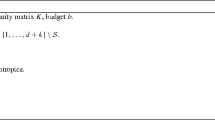Abstract
This paper addresses the problem of visited store estimation, which estimates the stores where a given user visited from GPS data. Because of the inherent measurement errors in GPS and the presence of multiple stores within the error range, accurately identifying the visited stores is challenging. A simple baseline estimation approach associates GPS data with check-in logs and learns the features during the user’s stay. This approach relies mainly on check-in logs, i.e., positive data, preventing precision (false positive rate) evaluations. Therefore, we propose a visited store estimation model that considers both precision and recall. We use the stores existing in the error ranges of GPS data as unlabeled data. Our proposed model is trained by incorporating unlabeled data and using the features we design. We introduce a new metric, namely the category-aware PUF score, which is an appropriate indicator for estimating precision in our problem setting. We conduct experiments on real-world data, and the results demonstrate that our proposed model achieves high recall and category-aware PUF scores.
Access this chapter
Tax calculation will be finalised at checkout
Purchases are for personal use only
Similar content being viewed by others
Notes
- 1.
Such kinds of situations, where the feedback from the user is incomplete, are quite generic among real-world mobile apps. For example, a positive example/label of a user checking in to a store can be obtained seamlessly (without extra user-app interaction) after the user makes payment using a mobile payment app at the store. There is, however, no way to tell whether the user has not visited the store (unless the user is asked explicitly, which is impractical from the user-app interaction perspective, as it does not provide a pleasant experience of using the app).
- 2.
Recall that this is the first work considering GPS errors for the visited store estimation problem. No existing visited store estimation methods can deal with sparse and/or GPS errors, so they are not available as competitors.
- 3.
References
Amagata, D., Arai, Y., Fujita, S., Hara, T.: Learned k-NN distance estimation. In: SIGSPATIAL, pp. 1–4 (2022)
Amagata, D., Hara, T.: Identifying the most interactive object in spatial databases. In: ICDE, pp. 1286–1297 (2019)
Bekker, J., Davis, J.: Learning from positive and unlabeled data: a survey. Mach. Learn. 109(4), 719–760 (2020)
Cao, X., Cong, G., Jensen, C.S.: Mining significant semantic locations from GPS data. PVLDB 3(1–2), 1009–1020 (2010)
Elkan, C., Noto, K.: Learning classifiers from only positive and unlabeled data. In: SIGKDD, pp. 213–220 (2008)
Feng, J.,et al.: Deepmove: predicting human mobility with attentional recurrent networks. In: WWW, pp. 1459–1468 (2018)
Huang, Z., Ma, J., Dong, Y., Foutz, N.Z., Li, J.: Empowering next poi recommendation with multi-relational modeling. In: SIGIR, pp. 2034–2038 (2022)
Ke, G., et al.: LightGBM: a highly efficient gradient boosting decision tree. In: NIPS. vol. 30 (2017)
Lee, W.S., Liu, B.: Learning with positive and unlabeled examples using weighted logistic regression. In: ICML. vol. 3, pp. 448–455 (2003)
Mordelet, F., Vert, J.P.: A bagging SVM to learn from positive and unlabeled examples. Pattern Recogn. Lett. 37, 201–209 (2014)
Nishio, S., Amagata, D., Hara, T.: Lamps: location-aware moving top-k pub/sub. IEEE Trans. Knowl. Data Eng. 34(1), 352–364 (2022)
Sánchez, P., Bellogín, A.: Point-of-interest recommender systems based on location-based social networks: a survey from an experimental perspective. ACM Comput. Survey 54(11), 1–37 (2022)
Tsuruoka, S., Amagata, D., Nishio, S., Hara, T.: Distributed spatial-keyword knn monitoring for location-aware pub/sub. In: SIGSPATIAL, pp. 111–114 (2020)
Wu, F., Li, Z.: Where did you go: Personalized annotation of mobility records. In: CIKM, pp. 589–598 (2016)
Xue, A.Y., Zhang, R., Zheng, Y., Xie, X., Huang, J., Xu, Z.: Destination prediction by sub-trajectory synthesis and privacy protection against such prediction. In: ICDE, pp. 254–265 (2013)
Yang, D., Zhang, D., Zheng, V.W., Yu, Z.: Modeling user activity preference by leveraging user spatial temporal characteristics in LBSNs. IEEE Trans. Syst. Man, Cybern.: Syst. 45(1), 129–142 (2014)
Yi, J., Lei, Q., Gifford, W.M., Liu, J., Yan, J., Zhou, B.: Fast unsupervised location category inference from highly inaccurate mobility data. In: SDM, pp. 55–63 (2019)
Zhao, P., et al.: Where to go next: A spatio-temporal gated network for next poi recommendation. IEEE Trans. Knowl. Data Eng. (2020)
Zheng, Y.: Trajectory data mining: an overview. ACM Trans. Intell. Syst. Technol. 6(3), 1–41 (2015)
Author information
Authors and Affiliations
Corresponding author
Editor information
Editors and Affiliations
Rights and permissions
Copyright information
© 2024 The Author(s), under exclusive license to Springer Nature Singapore Pte Ltd.
About this paper
Cite this paper
Shirai, R., Imai, R., Liew, S.P., Amagata, D., Takahashi, T., Hara, T. (2024). Estimating Visited Stores Through Positive-Unlabeled Learning. In: Onizuka, M., et al. Database Systems for Advanced Applications. DASFAA 2024. Lecture Notes in Computer Science, vol 14856. Springer, Singapore. https://doi.org/10.1007/978-981-97-5575-2_28
Download citation
DOI: https://doi.org/10.1007/978-981-97-5575-2_28
Published:
Publisher Name: Springer, Singapore
Print ISBN: 978-981-97-5574-5
Online ISBN: 978-981-97-5575-2
eBook Packages: Computer ScienceComputer Science (R0)




